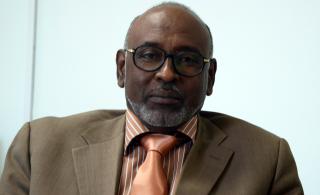Sudan and the Way Out of the Tunnel (3-3): Investment Policies, the Private Sector, and Supporting Policies

Professor Ahmed Magzoub Ahmed
Investment Policies:
Given that the government’s share of the GDP has not yet reached 15%, and that the private sector controls no less than 85% of the GDP, this confirms the vital importance of policies directly related to the private sector, especially investment policies. Investment is one of, if not the most, critical levers for the Sudanese economy. Thus, the path to achieving the desired renaissance lies in expanding and increasing both domestic and foreign investment. This requires attractive investment policies, the most important of which include:
1. Reviewing and improving business performance indicators from the initial application for an investment project to the operation stage, and even through to liquidation, transfer, or any other legal action. This includes revising investment laws, removing duplications, and streamlining administrative systems to attract investors amidst fierce competition among countries.
2. Developing and consolidating licensing authorities into one centralized location under unified administrative leadership, eliminating conflicts between federal, state, and local levels of government, and clearly defining each level’s authority and jurisdiction to protect investors from administrative entanglement.
3. Updating investment data by reviewing approved projects to identify operational and non-operational ones, ensuring seriousness and efficient use of Sudan’s resources.
4. Setting standards and criteria to assess the technical, productive, and financial capabilities of investors, preventing the misuse of resources based on subjective judgments by administrative officials.
5. Requiring foreign investors to deposit financial capabilities into accounts in local banks of their choice before establishing projects.
6. Setting clear timeframes for project completion to avoid monopolization of resources and ensure their availability to others.
7. Clearly stating the tax incentives offered to projects, the conditions attached, and the investor’s right to sell products domestically and internationally and to repatriate export revenues.
8. Reaffirming commitment to Arab and international investment protection agreements.
9. Ensuring the efficiency and independence of the judicial and legal systems without interference, to avoid the capital flight experienced during previous periods of judicial politicization.
10. Establishing a reference body to receive investor complaints and grievances, legally empowered to fulfill its role.
11. Adopting a media policy committed to the law and dedicated to creating a stable and welcoming environment for investors to settle and contribute to national development.
Private Sector-Specific Policies:
There is no doubt that the private sector has suffered immense damage due to the current war; its infrastructure was destroyed, and its capital lost. The industrial sector lost buildings and machinery, stocks were looted, and documents were burned. The commercial sector saw its markets and shops burned—not just in one market but across all markets in Khartoum State and beyond. The educational and health sectors were also devastated: buildings were burned, and funds, equipment, and machinery were stolen. This severely disrupted an essential part of the economic cycle.
Given the private sector’s contribution of no less than 85% of GDP, its employment of a significant portion of the workforce, and its production of essential goods, it is crucial for the government to adopt economic policies aimed at reviving this sector, including:
1. Leading initiatives to address the damages suffered—not just out of duty to the affected individuals, but as a responsibility to the national economy. This should include establishing a regional and international compensation fund, alongside a local fund, to assist those impacted by the war.
2. Providing concessional financing to the affected, with generous terms regarding limits, durations, and types of financing, enabling the sector’s recovery and contribution to national development.
3. Facilitating local guarantees by directing financial institutions to accept personal guarantees, goods as collateral, group guarantees, and deposit account movements, and encouraging insurance companies to cover loans made to affected parties.
4. Reviewing the taxes owed and currently imposed on the private sector, including activity practice fees levied by states and localities, to enable businesses to resume operations and contribute to GDP and corporate profit taxes. Moreover, war damages should be considered deductible losses over a three-year period, provided the business resumes activity within the prescribed time and adheres to economic priorities and efficiency standards while creating jobs to meet set targets.
Supporting Policies:
There is no doubt that achieving these goals requires political support, which could be achieved through:
1. Attaining a national consensus that ensures political stability during the transitional period, leading to elections where everyone respects the majority’s choice.
2. Establishing an independent governmental executive body responsible for implementing transitional programs.
3. Adopting a legislative reform program that ensures justice and equality for all before the law, guarantees full institutional independence, and eliminates distortions introduced over the past five years that caused economic, administrative, and financial deterioration. This would create a sound and stable legal environment that protects investors and preserves the rights of society and workers.
4. Launching social reform programs aimed at rebuilding the social fabric by correcting hate speech, planted by malicious actors to tear apart national unity, and mobilizing all social energies toward the goals of national renaissance.
5. Implementing a comprehensive media program executed through government and private channels, as well as social media platforms, targeting both the Sudanese domestic audience and the international, regional, and neighboring communities, thus creating a favorable environment to overcome challenges.
And our final prayer is: Praise be to God, the Lord of all worlds.



